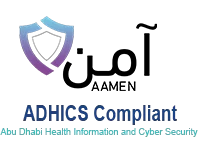A heart attack occurs when the arteries that supply blood and oxygen to the heart become blocked, leading to a lack of blood flow. This blockage is typically caused by the buildup of fatty deposits containing cholesterol in the arteries. Over time, these deposits, known as plaques, can narrow the arteries and eventually cause a heart attack.
Due to the severity of this condition, it is essential to recognize the heart attack symptoms. In the following, we will discuss the details.
Heart Attack Symptoms
Knowing that a heart attack is life-threatening is important, so recognizing the symptoms and warning signs is crucial. This helps in dealing with it quickly and avoiding its complications and risks. Here are the main heart attack symptoms you should know:
1- General Symptoms
Heart attack symptoms vary in order, intensity, and duration from one person to another. They may last for several days or come and go. They include the following:
- Pain, discomfort, pressure, or squeezing in the chest.
- Shortness of breath and difficulty breathing.
- Pain radiating to the arm, shoulder, neck, jaw, or back.
- The sensation is similar to indigestion or heartburn.
- Nausea and occasional vomiting.
- Sweating.
- Dizziness or lightheadedness.
- Fatigue.
- Upper body aches.
- A sense of panic accompanies anxiety.
- Coughing or wheezing, which occurs when fluid accumulates in the lungs.
It is essential to note that the appearance of any of the above symptoms is a significant warning sign. It means that these symptoms require immediate emergency medical attention. And the faster response, the better the chances of avoiding complications.
2- Severe and Dangerous Symptoms
Failure to act quickly may lead to the progression of heart attack symptoms, causing more severe and dangerous conditions, such as:
- Low oxygen levels in the blood.
- Pulmonary edema is caused by fluid accumulation in and around the lungs.
- Cardiogenic shock involves a sudden drop in blood pressure levels because the heart cannot pump sufficient blood to the rest of the body.
Do heart attack symptoms differ between females and males?
While heart attack symptoms vary from one person to another, it has been found that symptoms can also differ between genders.
For example, chest pain is one of the most common symptoms of heart attacks, but women describe it as tightness or pressure in the chest, while men describe it as a feeling of heaviness in the chest. The American Heart Association has indicated that women are more prone to specific symptoms than men, including:
- Shortness of breath.
- Nausea and vomiting.
- Upper back or jaw pain.
- Dizziness or lightheadedness.
- Severe fatigue.
Do heart attack symptoms differ in diabetic patients?
Research has shown that diabetic patients are more susceptible to experiencing silent heart attacks compared to non-diabetic individuals. This means that heart attack symptoms may not be apparent in diabetic patients, especially chest pain.
Regarding the silent and non-apparent symptoms, further studies have been conducted to investigate this. The explanations provided suggest that the development of neuropathy, which is nerve damage in diabetic patients, interferes with the body’s ability to feel chest pain.
Dealing with Heart Attack Signs
Since the appearance of any signs and symptoms of a heart attack requires immediate medical attention, some may wonder how to handle a heart attack. Here are the details:
1- Call emergency services
Call emergency services immediately and request immediate assistance if you are experiencing a heart attack. If you cannot reach emergency services, ask someone to transport you to a medical help center. If none of the previous options are available, drive yourself to the nearest medical facility.
2- Take nitroglycerin
If your doctor has previously prescribed nitroglycerin, follow their instructions.
3- Take aspirin
Aspirin may help reduce heart damage during a heart attack by preventing blood clotting.
Download Alma Health application now!









